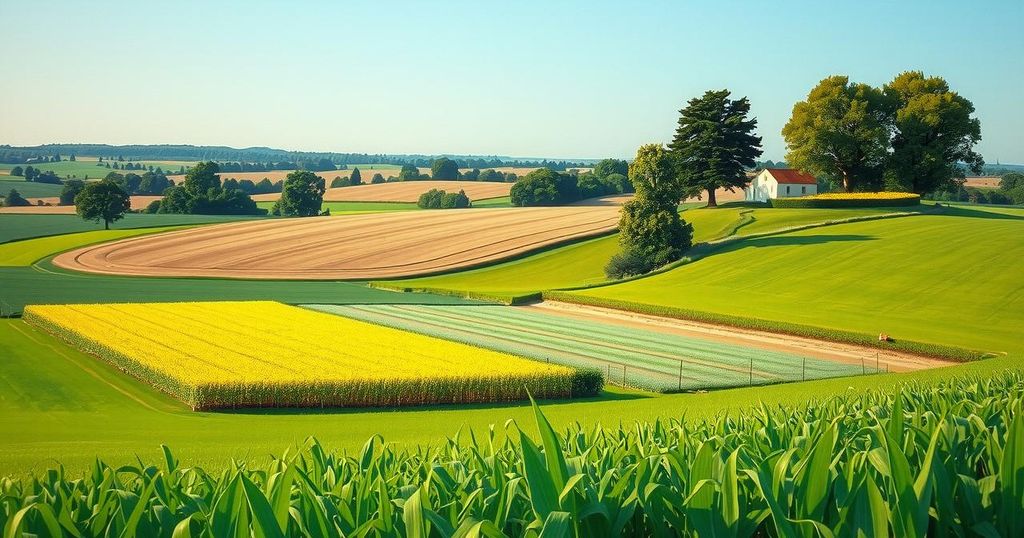The Struggle for Land Ownership Among Rural Women in Colombia

In Colombia, only 26% of rural women own the land they cultivate, despite constituting 40% of the agricultural workforce. Through collective struggles, women engage in peasant and popular feminism to advocate for their rights to land and dignity. Their activism is critical for achieving food sovereignty and challenging systemic inequalities in rural settings.
In Colombia, rural women are engaged in profound struggles for land ownership, representing a crucial component of agricultural production and food sovereignty. Organized under the National Unitary Agricultural Trade Union Federation (Fensuagro), these women embody a form of feminism rooted in agrarian issues and collective resistance.
Not only do Colombian peasant women produce nearly half of the food in rural areas, but they also safeguard native seeds and ancestral knowledge. Their essential role goes beyond mere agricultural productivity; they champion food sovereignty as a fundamental right that enables them to determine their own farming practices and resist the encroachment of agribusiness.
Fensuagro articulates that “Peasant and popular feminism is women’s struggle for land, for water, for the right to live with dignity,” emphasizing the need to challenge the patriarchal structures intertwined with neoliberal policies that threaten their livelihoods. This advocacy is integral to confronting the pervasive violence and inequality women encounter in rural settings.
The Latin American Coordination of Rural Organizations, CLOC Vía Campesina, and the broader La Vía Campesina movement underscore this activism by highlighting struggles against machismo, land dispossession, and the insecurity of rural living conditions. Their effort is grounded in the belief that achieving social justice and gender equity is vital for substantive structural change.
Despite constituting 40% of the agricultural labor force, rural women in Colombia face significant barriers, with only 26% owning the land they cultivate. Nevertheless, these women have successfully established educational programs, cooperatives, and political forums to foster leadership within their communities.
Across diverse Colombian landscapes, from the Cauca Mountains to the Amazon, organized women are actively participating in peasant markets, fighting for land restitution, and creating networks that counter the enduring dynamics of invisible labor. Their fight transcends individual recognition, aiming for holistic transformation of agrarian, social, and economic systems.
As noted by La Vía Campesina, “With feminism, there is food sovereignty,” reinforcing the notion that the future of Colombian agriculture is inexorably linked to feminist ideals. Through their tireless efforts, these women illustrate that the prospect of a just and equitable rural Colombia hinges on their active participation and empowerment.
In summary, rural women in Colombia face significant challenges with land ownership, with only 26% of them owning the land they work, despite making up 40% of the agricultural workforce. Through organizations like Fensuagro, these women advocate for peasant and popular feminism, which embodies their struggles for land, dignity, and social justice. Their continued mobilization and leadership are vital to achieving food sovereignty and transforming agrarian inequality in Colombia.
Original Source: viacampesina.org







